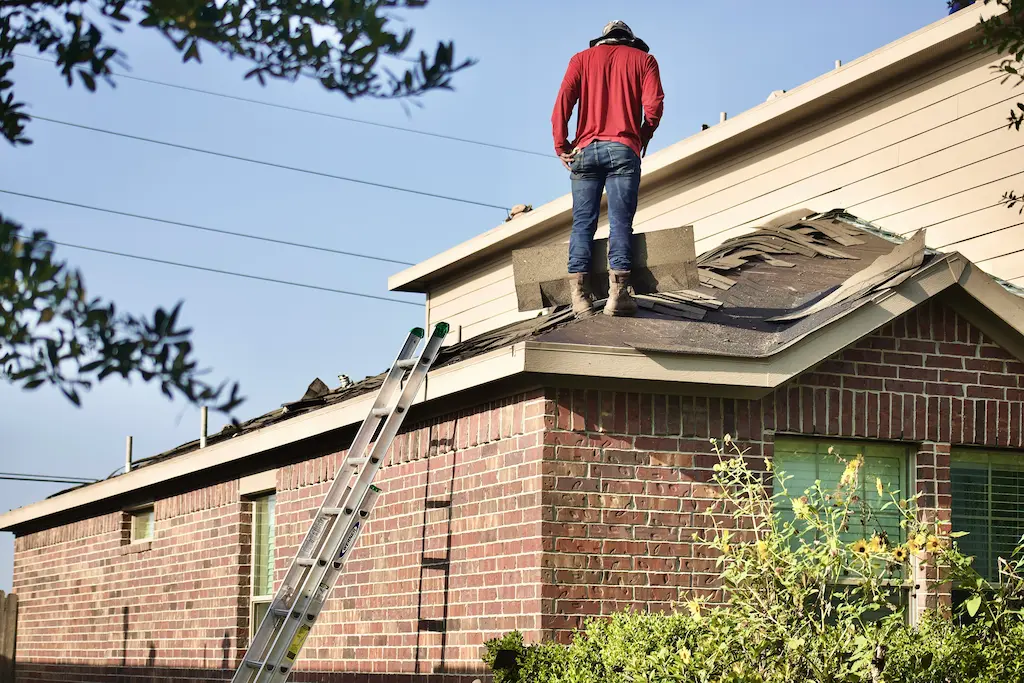Risks Roofing & Waterproofing Contractors Take in Saint Lucie County
Table of contents
- Underestimating Florida’s Harsh Climate
- Improper Roof Flashing Installation
- Inadequate Surface Preparation Before Waterproofing
- Overlooking Proper Roof Ventilation
- Inaccurate Slope and Drainage Planning
- Using the wrong Fasteners or incorrect Fastening Patterns
- Poor Communication with clients
- Rushing Projects due to weather Pressures
- Ignoring Technological Advancements
- Avoiding Roofing Mistakes in Martin County

Saint Lucie County could be a coastal heaven on earth that offers sunshine, ocean breezes, and beautiful landscapes. However, for roofing and waterproofing contractors, working in this paradise comes with significant risks regarding timelines, safety, financial stability, and customer satisfaction.
Understanding these risks helps property owners appreciate the dedication and expertise contractors bring to each project besides highlighting the importance of partnering with licensed, insured, and trusted contractors.
Next, we’ll analyze the key risks roofing and waterproofing contractors face in Saint Lucie County.
Weather Volatility
Like most of Florida, Saint Lucie County experiences heavy rainfall, high humidity levels, and strong winds besides being highly exposed during hurricane seasons, posing important risks as follows:
- Sudden downpours can cause floods
- High humidity affects the curing of sealants, adhesives, and coatings
- Storms can damage roofs, leading to material loss or the need of additional repairs
Contractors must always take into account weather forecasts, schedule projects according to storm seasons, and use weather-resistant planning and protective measures to secure materials and protect open roofing areas.
Working at Heights
Roofing inherently involves working at heights, increasing the risk of falls and injuries such as:
- Given the high humidity levels in Saint Lucie, slippery surfaces from morning dew, rain, or algae buildup are pretty common.
- High winds can destabilize ladders, scaffolding, and even workers.
- Handling heavy materials and equipment while on high roofs increases the risk of accidents.
Trusted contractors must invest in safety training, use personal protective equipment (PPE), adhere to OSHA fall protection standards, and implement rigorous safety protocols to protect workers while maintaining project timelines.
Heat Stress and UV Exposure
Florida’s intense sun poses important heat-related risks for contractors who work on roofs for extended periods, including:
- Heat exhaustion and heat stroke
- Dehydration, sunburn, and long-term UV-related health risks like skin cancer
Contractors must schedule work during cooler hours, ensure regular hydration, enforce breaks in shaded areas, and use protective clothing and sunscreen to reduce these risks.
Material Handling and Storage Challenges
Roofing and waterproofing projects require large quantities of heavy materials, including shingles, rolls of membranes, metal panels, and buckets of coatings, which implies risks such as:
- Injuries from lifting heavy or awkward materials
- Damage to materials from improper storage in humid conditions
- Financial losses if materials are damaged or theft occurs
Using proper and safe lifting techniques, and choosing secure, weather-protected storage options are essential for reducing injury and material loss risks.
Navigating Building Codes and Permits
Saint Lucie County has strict building codes designed to ensure structures can withstand extreme weather conditions. Contractors may face important risks if:
- Permits are delayed, affecting timelines
- Work fails inspections, resulting in costly rework
- Code changes occur in the middle of a project
To mitigate these risks, contractors must stay updated on local codes, maintain good relationships with permitting offices, and ensure projects are designed and executed to meet code requirements.
Financial Risks from Payment Delays
Contractors often face payment delays due to reasons such as:
- Insurance claim processes
- Client disputes
- Cash flow disruptions during multi-phase projects
These delays can impact payroll, materials purchasing, and overall business stability. To prevent these problems and maintain transparency with clients, it is very helpful to offer clear contracts, upfront deposits, progress billing structures, and strong documentation of work performed.
Insurance and Liability Exposure
Roofing and waterproofing contractors carry significant liability, which encompasses:
- Property damage risks
- Worker injury claims
- Warranty call-backs requiring additional labor and materials
Insurance is costly, but lack of proper coverage exposes both contractors and clients to financial risks if accidents occur. For that reason, trusted contractors maintain comprehensive general liability, workers’ compensation, and vehicle insurance, along with solid warranties, reducing risks for themselves and clients.
Hidden Structural Issues
Roofs may have hidden issues such as rot, pest damage, or structural weaknesses that only show up after work begins, which poses risks like:
- Project delays
- Additional costs for repairs
- Safety hazards for workers
Conducting thorough pre-project inspections and maintaining constant and transparent client communication helps contractors adjust project scopes as needed when hidden issues are discovered.
Environmental and Disposal Compliance
Roofing projects generate waste, and if this waste is improperly handled or disposed of, contractors may face penalties and community pushback. Proper debris management, recycling efforts, and compliance with local disposal regulations protect contractors and also the community.
Overcoming Roofing Risks in Saint Lucie County
Roofing and waterproofing contractors in Saint Lucie County take significant physical, financial, and operational risks while doing their job. However, their expertise and commitment ensure buildings can withstand Florida’s demanding climate while ensuring comfort and preserving property value.
Choosing licensed and insured contractors, understanding the complexities and risks involved in every project, and having realistic expectations help home and property owners minimize these risks. Meanwhile, contractors can implement safety protocols, plan in advance, and maintain transparent communication with clients, building trust and a solid reputation among the Saint Lucie County community, contributing to sustain the vibrant life of this community.
